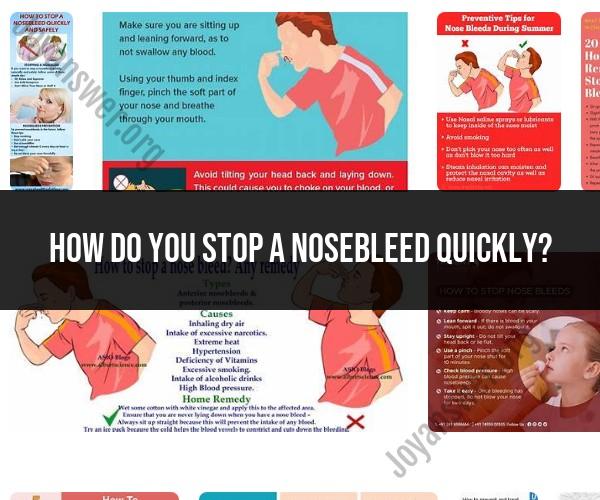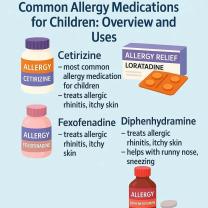How do you stop a nosebleed quickly?
Stopping a nosebleed quickly involves following these first aid techniques:
Stay Calm: The first step is to remain calm. While nosebleeds can be unsettling, panicking can make the situation worse.
Sit Up Straight: Keep your head above your heart. This helps reduce blood flow to the nasal area and can aid in stopping the bleeding.
Pinch Your Nose: Use your thumb and forefinger to pinch your nostrils together, just below the bony bridge of your nose. Pinch firmly but not so hard that it causes additional pain.
Breathe Through Your Mouth: While holding your nostrils closed, breathe through your mouth to avoid putting pressure on your nasal passages.
Hold for 5-10 Minutes: Maintain the pressure on your nostrils for at least 5-10 minutes. This allows time for the blood vessels to constrict and stop the bleeding.
Release Gradually: After the bleeding has stopped, release your nostrils slowly. Don't release too quickly, as this might trigger the bleeding again.
Apply a Cold Compress: Applying a cold compress or ice pack to the bridge of your nose can help constrict blood vessels and prevent further bleeding. Wrap the ice pack in a cloth to avoid direct contact with the skin.
Keep Your Head Elevated: For the next several hours, try to keep your head elevated, even when sleeping, to minimize the risk of the nosebleed recurring.
Avoid Irritants: Refrain from blowing your nose, picking your nose, or any activities that may irritate the nasal passages for at least 24 hours after the nosebleed.
Use a Nasal Moisturizer: After the bleeding has stopped, you can use a saline nasal spray or apply a thin layer of petroleum jelly inside your nostrils to keep them moist and prevent future nosebleeds.
If the nosebleed persists for more than 20-30 minutes, is severe, or occurs frequently, it's essential to seek medical attention, as there could be an underlying issue that needs to be addressed. Additionally, if the nosebleed is the result of a head injury or other trauma, or if you have other medical conditions that affect your blood's ability to clot, you should consult a healthcare professional promptly.
Emergency Nosebleed Care: Quick Steps to Stop the Flow
If you or someone you know has a nosebleed, follow these steps to stop the flow quickly:
- Sit up straight and lean forward slightly. This will help to prevent the blood from running down the back of your throat.
- Pinch the soft part of your nose just below the bridge of the nose. Use your thumb and index finger to apply firm pressure.
- Breathe through your mouth.
- Hold the pressure for at least 10 minutes. If the bleeding has not stopped after 10 minutes, repeat steps 2 and 3.
- After the bleeding has stopped, avoid blowing your nose or picking your nose for at least 24 hours. This could cause the bleeding to start again.
Fast and Effective: Immediate Measures for Halting a Nosebleed
If you have a severe nosebleed that does not stop after following the steps above, you may need to seek medical attention. Your doctor may be able to apply a nasal packing to help stop the bleeding.
In rare cases, a nosebleed may be a sign of a more serious medical condition, such as high blood pressure or a blood disorder. If you have frequent or unexplained nosebleeds, see your doctor to rule out any underlying medical conditions.
Stopping Nosebleeds on the Spot: Rapid Response Techniques
Here are some additional tips for stopping nosebleeds quickly:
- Apply a cold compress to the bridge of your nose. This can help to constrict the blood vessels and reduce bleeding.
- Use a saline nasal spray to moisten the inside of your nose. This can help to prevent nosebleeds from starting in the first place.
- Avoid taking aspirin or ibuprofen, as these medications can thin your blood and make nosebleeds worse.
If you have a nosebleed that is severe or does not stop after following the steps above, seek medical attention immediately.













